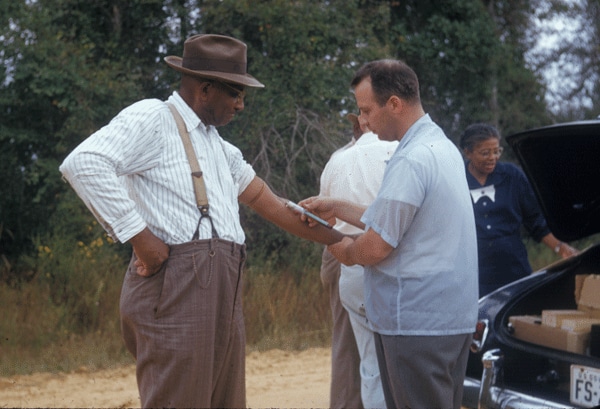Hello, world!
Today I'm going to be sharing a post I made on a discussion board for my Cultural Food Practices class. The prompt given to us was as follows:
"The text emphasizes the need for nutrition counseling to combat high blood pressure. What are some good techniques to use in counseling when many blacks have a generalized lack of trust in the biomedical community? What are good questions to ask? How should non-compliance be handled in nutrition counseling?"
My reply:
First, I believe it is important to mention why the black community has such a distrust in modern biomedicine. The major cause of which I’ll mention is the Tuskegee Syphilis Study where 600 black men, 399 of whom had syphilis, were subjects of experimentation from 1932 to 1972 by the Tuskegee Institute and the U.S Public Health Service. A total of 40 years for a project meant to last only 6 months. The subjects received medical exams, burial funding, and free meals for their contributions, but they were not told what the experiment was for in detail. The most they were told was that they were being treated for “bad blood” which can include syphilis but may also mean one has anemia, fatigue, and other blood-based diseases and symptoms. The truth was that they were not being treated even after penicillin became the drug of choice in 1945. Even worse prior to this discovery, it was decided in 1936 that the men would be followed until death.
It wasn’t until 1947 that black medical students began their rotations at the Tuskegee Institute and started having concerns. After twenty-two years of growing concerns, Peter Buxton becomes the primary whistleblower for the case. A committee was formed by the U.S Public Health Service after Buxton bought his concerns, but the decision was made to continue once more. Afterward, Buxton gives the story to his friend, Jean Heller, who happened to be a reporter and the story hit the nation in 1972. This of course led to public outcry and the study ended, but by this time over 100 participants had died from syphilis itself or other complications, and over 50 spouses and children had been diagnosed with the disease. Congress filed a class-action lawsuit and won 10 million dollars for the families and surviving members meant to cover medical, and burial costs for the rest of their lifetime. In 1997 then-President Clinton offered a public apology on behalf of the U.S government.
Now it would make sense that many of us are wary of men in lab coats or black suits coming to our doors trying to ask us some questions. Though it’s sad to say many of the ways we can make black Americans feel safe in a medical setting are things that should be done at all times. From this study gone awry, I can say with confidence that as a member of the medical community the best thing to do when counseling black patients is to let them know exactly what you’re doing. Many members of the community who are elderly aren’t aware of a lot of medical terms and diseases, so the best thing to do is to make sure that they can at least get a basic understanding of what’s going on with their body and how it can be helped. Never push any sort of treatment especially if the patient still doesn’t fully understand what the treat is for. Hand the patient a pamphlet and let them think about what’s best for them or their family member.
Even with all the things mentioned sometimes to fear of what might be done to oneself is great enough to ignore doctors' orders. This is especially true for those who have health beliefs outside of modern biomedicine such as a Jehovah's Witness not wanting a blood transfusion or someone seeking herbal or spiritual treatment. In that case, the best thing to do is to let the patient know that at the end of the day their health is up to them but reassure them that you do want what’s best.
Centers for Disease Control and Prevention. (2020, March 2). U.S. Public Health Service Syphilis Study at Tuskegee. Retrieved March 31, 2021, from https://www.cdc.gov/tuskegee/timeline.htm
Nix, E. (2020, December 5). Tuskegee Experiment: The Infamous Syphilis Study. History. Retrieved March 31, 2021, from https://www.history.com/news/the-infamous-40-year-tuskegee-study

Comments
Post a Comment